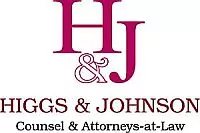Article by Sterling H. Cooke
Questions marks are constantly raised over the performance of a trustee's duties and whether the trustee in question has discharged its obligations in fulfilling those duties. To assist the trustee in protecting itself, the trustee in the majority of, if not in all, cases will look to the protection afforded to it or them by any exoneration clause included within the Trust Deed. Given the ever increasing complexity of a trustee's duties in the 21st century, this issue has been of great interest to trustees.
Exoneration clauses were introduced to give protection to trustees from liability where the trustee had acted in good faith and such clauses allowed trustees, who would not otherwise have been prepared to accept such a position, to make decisions with the requisite speed and confidence in an increasingly litigious environment. But how sturdy are exoneration clauses in practice?
The leading judgment on the protection afforded to trustees by an exoneration clause historically is that provided by Millett LJ in the Court of Appeal decision in Armitage v Nurse. It was established in this case that a trustee which has a suitably worded exemption clause can exempt itself from all liability for breaches arising out of its own actions apart from in instances of his own actual fraud or dishonest activity. It followed that a clause which excluded liability for negligence or even "gross negligence" was not, in the laws of England and Wales, contrary to public policy.
With Armitage in mind, the position over exoneration clauses was recently reconsidered in the Guernsey case of Spread Trustee Company Limited v Sarah Ann Hutcheson and others at all levels up to and now including the Privy Council. In this case there was an examination of the standard exoneration clause included in the Trust Deed in question which stated:
"In the execution of the trusts and powers hereof no Trustee shall be liable for any loss to the Trust Fund arising in consequence of the failure, depreciation or loss of any investments made in good faith or by reason of any mistake or omission made in good faith or of any other matter or thing except wilful fraud and wrongdoing on the part of the Trustee who is sought to be made liable".
This exoneration clause in Guernsey was considered in light of an amendment to the domestic Guernsey Law in 1991 under which Law it was stated that exoneration clauses could not lawfully exclude liability arising out of the Trustees fraud or wilful default and the amendment to the Law extended this exclusion to gross negligence as well. What made the case of Spread more interesting, however, was that the alleged breaches of trust against the Trustee arose before the date of amendment of the Guernsey Law. It was therefore a question of what authority would be used to determine whether the before mentioned exoneration clause would cover the alleged breaches of Trust which were ones of gross negligence rather than deliberate fraud or wrong doing.
The Privy Council considered that as a matter of Guernsey (and also English) common law it was possible for a Trustee to exclude liability for gross negligence thereby reaffirming the position established in Armitage.
The Privy Council concluded that:
"Millett LJ summarized his view as being that [the exoneration clause], which excluded liability for anything other than fraud 'exempts the Trustee from liability for loss or damage to the Trust property no matter how imprudent, lacking in diligence, negligent or wilful he may have been so long as he has not acted dishonestly'. The board agrees".
While this judgment provides a certain level of comfort for Trustees when considering their position in a dispute over them discharging their duties this case creates far from a certain position in that it is possible that a Supreme Court board in a future case may wish to re-examine Armitage v Nurse. Further the majority decision by the Privy Council in this case was far from a convincing majority with the board of the Privy Council being spilt 3 to 2.
It was considered in this case that gross negligence does not form part of the "irreducible core" of the Trustee obligations and that an exoneration clause can therefore exclude acts of gross negligence. In the case it was considered that "...on the plain meaning of the words and as a matter of logic and common sense the terms "negligence" and "gross negligence" differ only in the degree or seriousness of the want of due care they describe". Accordingly, it will be important in cases that arise in the future for courts to consider the definition of "gross negligence" closely and as such it may be very useful when drafting trust deeds across jurisdictions for the term gross negligence to be a defined expression.
The content of this article is intended to provide a general guide to the subject matter. Specialist advice should be sought about your specific circumstances.


